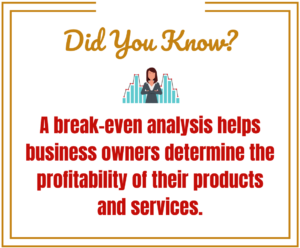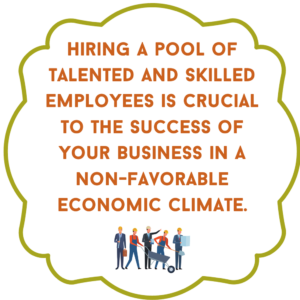Find Your Perfect Business Degree
www.business-management-degree.net is an advertising-supported site. Featured or trusted partner programs and all school search, finder, or match results are for schools that compensate us. This compensation does not influence our school rankings, resource guides, or other editorially-independent information published on this site.
In business, starting the initial steps is a difficult time in any environment. Aspiring entrepreneurs invest a great deal of time and effort during a favorable economic climate. However, it can be more difficult during a “rocky” economy.
A rocky economy that is usually brought about by a crisis can severely impact an industry regardless of size and location. These are caused by several factors, such as changes in commodity prices, interest rates, and stock market fluctuations. An economy also becomes rocky because of a substantial drop in consumer confidence.

Black swan events like the current COVID-19 pandemic also bring about lackluster economic growth. This instability leads to a decline in investments, a drop in spending, growth reduction, and a rise in unemployment. This is why it is pivotal for any entrepreneur to consider the economic implications.
As launching a business during a global downturn is more of a risk, thriving entrepreneurs think of new ways to generate revenue and keep their businesses afloat. Future business owners take a proactive and flexible approach, thus turning the bad economy into a favorable time for generating sales and revenue.
In a rocky economy, low competition is expected. And most likely, if you have promising prospects, smart investors are willing to invest because of cheaper credit at lower interest rates.
Sweeping in profits is an uphill task. It will take a lot of research, the right tools and strategies, and sound decision-making skills.
Here are some additional resources you may want to check out:
- THE BEST BUSINESSES TO OWN
- BEST BUSINESS MAJORS FOR THE FUTURE
- STARTUP BILLIONAIRES: THE NUMBERS BEHIND THEIR SUCCESS
Starting your own business can be an exciting and daunting proposition, especially in a challenging or rocky economy. With proper planning, strategically calculated risks, and the necessary drive and determination, you can achieve success running your own business. This guide provides some tips for starting your own business in a rocky economy.
The initial phase: Create a business plan.

Is there a demand for your product or service? What are your financial investment options? Do you have the right strategies to sustain your business operations in an unfavorable economy?
The starting phase of every business in a slow economy is the most challenging part that requires a fail-proof strategy. It involves a thorough understanding of every aspect of the business without rushing into things.
The business plan helps you set the purpose of your business, identify your target consumers, and determine your end goals. You can also draw inspiration from mistakes and failed businesses in the past.
When drafting a business plan, conducting in-depth research is a must. Through this, you will be able to master your product, the industry involved, and its services. Joining business associations and industry-related groups can keep you informed of the current market value and track your market competitors.
You can hire a lawyer for contracts and an accountant for finances at a variable cost if you have minimal knowledge in that professional field. Trying to manage everything with little skill and experience may waste your time and cost you money.
A potential entrepreneur needs to strike a balance between the business approach and sound analysis. Your judgment must be based on the facts and not just emotions. Be mindful of the warning signs and adopt the best practices. Moreover, keep an equal scale in all focus areas and spend on your product marketing efforts with caution.
Generate funding.

Launching any enterprise is no minimal expense. A common problem that business owners face is financial resources are something you need to anticipate and prepare before your startup. Before you turn your business into a profit, make sure you still have enough money to keep operational expenses rolling in an economic downturn.
This starts with assessing your finances as to how you are going to cover the cost. Whether you have the means to fund your business or loan money from a bank, it is best to find out regarding your startup costs. By performing a break-even analysis, it helps business owners determine the profitability of their products and services.
In applying for a bank loan, you can inquire from trusted friends and seek professional help to review your business plan. This is to cross-validate that you are not making inaccurate business presumptions or overlooking anything critical. Choosing the right bank depends on the needs of your business. Focus on those needs and schedule bank meetings to find suitable financial institutions right for you.
Prepare a backup financial plan that is good for six to 12 months. If revenue projections fail to hit the mark, you have your cash reserves to make those most crucial payments, such as utility bills, insurance, and rent. Consider also saving a small portion of the credit line to make sure funds are available should slow economic periods continue.
Another tip is to manage your cash flows consistently by making financial projections every month and monitoring your progress throughout the year. In these ways, you can still bring sustainable revenue despite an anticipated economic downfall.
Create a marketing strategy.
Marketing is a game-changer in your industry and within your competitors. For a business to grow, it needs a viable idea. But in a rocky economy, it takes creativity, innovation, and originality to embark on a new business. This is where your thorough business and market research on your industry and demographics of potential customers will now be put into action.

Gathering demographic information, as the U.S. Small Business Administration (SBA) recommends, can help you understand limitations and opportunities within your market.
In a slow economy, you need to identify and market the unique selling points of your product or service. What makes your product or service different? How is this different from the competitor in the open market? Through these, you can analyze these competitors and reevaluate your product or service.
You can build a great lead magnet. For clientele to quickly identify your brand, create a logo, and be consistent in promoting it across all platforms- from print ads, and company websites to social media. Email marketing sequences, optimizing search engines, and blogging are also some ways to boost marketing visibility.
The word-of-mouth strategy usually works for introductory discounts and promotions for that initial wave of customers and followers. Keep in mind, however, that a robust online presence is relevant in today’s age and works as a sustainable marketing strategy. These marketing approaches, in the beginning, are as vital as providing quality products and services, especially when the world economy is taking a nosedive.
Start small and work your way up.
Your expectations and business goals should be realistic and measurable during this challenging economy. You don’t want to end up selling your unsuccessful big business in just a matter of six months. However, through your business expansion mindset, you can look for available resources, funding, and opportunities to make it happen one day.
By reviewing your business plan, you can reconsider what and how to start a small business. Should you need a less expensive and small location initially and hire employees on a contractual or full-time basis? If you are eyeing business expansion within a specific time frame, you can start with training employees to be great talents versus hiring high-cost managers to maintain for an extended period. This will depend on your economic foresight and balanced decision-making process.
You can add new products and services to your industry or target new customer markets, too. For another opportunity to expand, you can look for prospects by investing in other businesses or purchasing smaller companies. As long as it shares the same mission you have in your organization, then that can give you a heads up despite this economic turmoil.
Network.

To establish a mutually beneficial and entrepreneurial relationship with other like-minded people and customers, it helps to get into business networking. Through new contacts and referrals, they will be aware of your products or services and hopefully turn them into customers.
In a community, every person can be a potential client. Start by expanding your professional network. Social media platforms are practical approaches to communicating with business associates and customers. There are also professional associations and business groups where you can join to exchange business information, ideas, and support.
Promote your business by cultivating professional relationships and participating actively in their groups. This will give you more business referrals and opportunities in the future. Consequently, these will help your business by anticipating trends in the market and also monitor your competition in the background.
It is particularly important, especially now in the time of global crisis, to find assistance and support from business seniors as your new and established professional network.
Hire the best people.

Hiring a pool of talented and skilled employees is crucial to the success of your business in a non-favorable economic climate. In an entrepreneurial startup, the quality of your workforce will propel or plunge your business profit.
When launching a business that is yet to generate revenues, you need a productive employee to get the job done. However, qualified candidates also have job offers from other stable and reputable companies and will probably choose them for obvious reasons.
The challenge as a business owner is how to gather the best employees for the organization. After checking if they match your expectations, make smart choices in hiring them. Consider the reliability, affordability, and productivity that they can bring to the table.
You may offer employee benefits programs and emphasize the benefits your business offers. As much as possible, base their salary on the market realities rather than budget, but be careful not to go overboard. And in the end, be creative with the perks by making your offer something they can’t refuse.
Establish customer loyalty.
This time of economic downturn has brought customer moments that matter. It is one thing to build your brand name to the customers, and another to retain them. For customers to purchase your products and services for a continuous cycle, potential entrepreneurs need to foster effective customer relationships.
Being true to your brand and purpose will allow you to interact positively with customers. By focusing on their needs and making their interest a priority, it will develop a consistent brand identity. Improve your service based on the information about what, when, and how consumers buy. Encouraging feedback can help your small business assess your edge among competitors and factors on how to improve your service and product.
In times of economic crisis, be innovative by finding new methods to work with customers, and new technologies, and drive revenue to identify challenges and create opportunities. Indeed, loyalty to customers is social proof for your business to be relevant in the industry.
Starting a business is a process and not an event. And in these tough times, your business know-how and decision-making skills will be put to the test!

How does starting a business affect the economy?
Starting a new business contributes to economic growth by creating jobs, generating new demand for goods and services, introducing new products and services to the market, and creating opportunities for innovation and increased efficiency in the economy.
For example, a new business may require new buildings and equipment, which in turn supports the construction and manufacturing industries. New businesses also produce services and goods, providing opportunities for increased production, consumption, and trade. This may increase the economic activity within the region, contribute to local taxes, and provide additional sources of income for those in the area.
Finally, new business owners often rely on existing businesses for resources in order to get their businesses up and running, providing support and resources to those existing businesses.
What is one essential thing to consider before starting your own business?
One essential thing to consider before starting your own business is the financial stability of your business plan. Proper planning and budgeting are critical for any successful business. Consider researching industry trends, marketing strategies, and startup costs before launching your new venture.
Additionally, make sure you are aware of any laws and regulations that may affect your business operations.
What are the challenges faced by small businesses today?
- Sustaining Growth: It’s difficult for small businesses to grow quickly and sustain that growth without adequate capital and resources.
- Finding Financing: Banks are often hesitant to lend to small businesses, making it difficult for them to acquire necessary capital.
- Creating Brand Awareness: With limited advertising budgets and resources, small businesses struggle to build brand awareness.
- Keeping up with Technology: Small businesses often lack the budget or technical know-how to keep up with the latest technologies that are essential for success.
- Boosting Productivity: It can be difficult for small businesses to find solutions to help improve productivity.
- Attracting Talent: Small businesses often compete with larger companies when it comes to recruiting and retaining employees.
- Handling Administrative Tasks: Small businesses often lack the capability to manage financial accounting, payroll, tax reporting, and other administrative tasks.
- Managing Cash Flow: With limited cash reserves, it can be challenging for small businesses to weather short-term financial hardships.
- Competing with Established Companies: Small businesses often face stiff competition from well-established companies in their fields.
- Dealing with Regulations: Small businesses must contend with complex rules and regulations set by local, state, and federal authorities.
